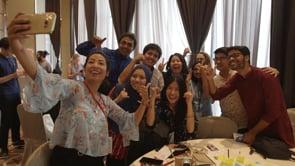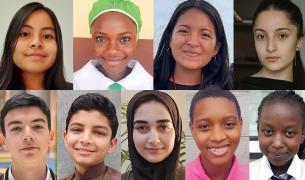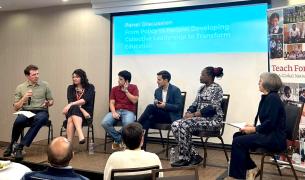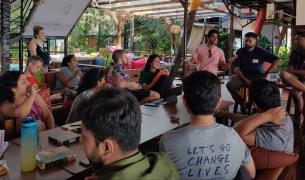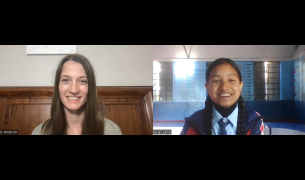The Asia-Pacific Alumni Gathering: A Self-Organizing Call To Action
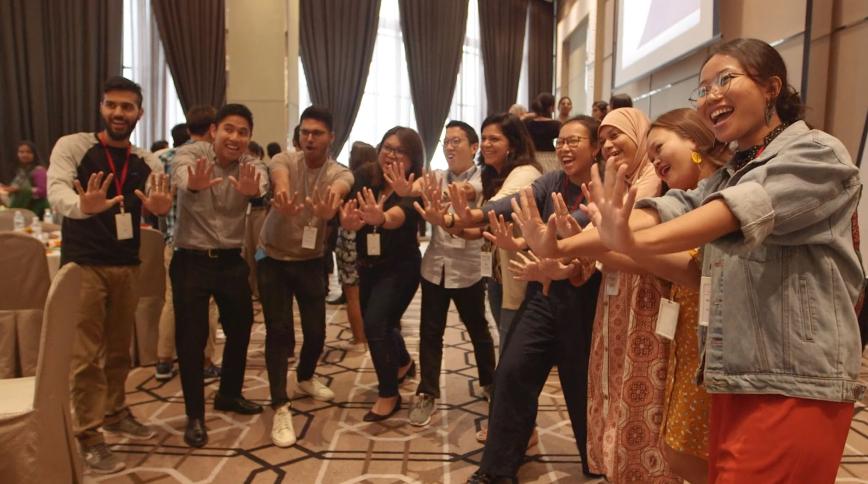
In late August, more than 100 alumni from 12 countries came together in Malaysia for the second annual Asia Pacific Alumni Gathering. During our gathering, we aimed to further build a community of alumni in the Asia Pacific Region that creates opportunities and spaces to foster the collective leadership of our students, communities, countries, and region to strive for an equitable world.
Over the course of three days, alumni stepped out of their comfort zones and engaged in activities and conversations that enabled them to bring new knowledge and skills back to their local communities. Designed and planned over six months by a committee of seven alumni from the region, the gathering was a clear example of collective leadership in action!
Our organizing committee learned a great deal in the process of planning and executing the event—the following are some lessons we took away from the experience:
Lessons Learnt:
- Listening to Our Community Works. Our region’s alumni are incredibly diverse and live and work in equally diverse contexts. Therefore, we surveyed 195 APAC alumni to deeply understand the needs and challenges they face. This initiative widened our perspective about cross-cultural professional challenges, and we broadened the scope of the content we planned for the gathering.
Our alumni further embodied this lesson by leading “lightning talks” to spark connections with others facing similar problems in their focus areas, including literacy, working with students who have faced trauma, and more. Others planned and facilitated deep-dive sessions on topics such as social and emotional learning and design thinking, in response to the survey results.
- Vision Drives Motivation. Our alumni community shares the belief that teachers alone cannot change unjust systems. Our collective vision requires collective leadership—we need to work together with other key players like politicians, innovators, journalists, and entrepreneurs who view the problem from different lenses. During the event, we internalized a collective vision and reflected on how each of us wanted to make it our own. We then self-organized into themes of interest such as teacher development, policy, and social entrepreneurship to develop an action plan for how each group could collectively effect change.
Our collective vision is: We are a community of alumni in the Asia Pacific Region that co-creates opportunities and spaces for ourselves, students, communities, country and region to aspire and strive for an equitable world.
- Dedication and Urgency Catalyze Connection. Although the planning committee had limited time and resources, we learned how to motivate and continuously engage each other. From our private WhatsApp group to late night calls, we carried each other when work responsibilities had to be prioritized. To others starting a community, know that collective leadership is an art of communication. Leaders must accept working differences and express conflict amongst themselves to achieve success for the community.
Our alumni embodied this commitment in their dedication to their Learning Circles, the groups they reflected with throughout the week. They also became thought partners for each other, proposing solutions to problems their peers were facing through a Consultancy Protocol structure.
- Opportunities Must Be Co-Created. We created opportunities for leaders across the APAC region, including ourselves, to model and encourage rigor. From session planning to coordinating lightning talks to pushing strict deadlines, we also made attendee participation rigorous.
This was apparent in our results. Over 130% more people applied to attend the gathering than last year! And nearly 100% of alumni felt connected to the regional vision. The 10 lightning talks, 14 skill-building sessions, and a gallery walk enabled alumni to design eight theme-based projects and initiate six learning groups.
- Our Vision is Beyond This Event. The planning committee started with the effort of seven individuals and passed the vision to the larger alumni network, but this vision goes beyond 100 alumni and extends far into the future. We have so much to do to strengthen our leadership capabilities to address the challenges of our education systems.
From the personal stories we shared with each other to the knowledge and skills we built, this event has planted the seed for our community to keep engaging and creating spaces for Teach For All network alumni to learn with and from each other as we contribute to creating a more equitable world for every child.
